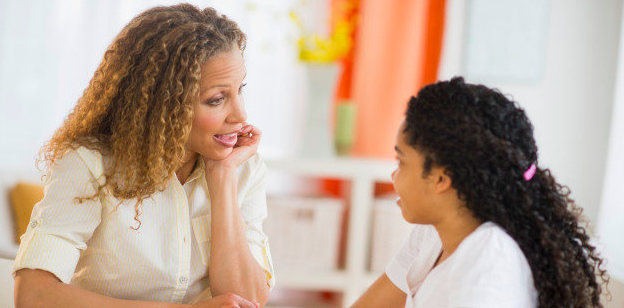I found the following image floating around on Instagram:

To be completely honest here, my guesstimate would be even higher because most folks are continue to be guided by brainwash when it comes to cannabis – even those who consume it. Our conditioning says we’re supposed to discourage our kids from taking mood altering substances, not tell them that we consume one! I feel fortunate to be a parent in the here and now where we have access to a wealth of scientific data distinguishing healing substances from harmful ones.
Telling your kids, “I use cannabis.”
Broadly recently interviewed a bunch of cannamammas about their approach to having “the talk” with their kids. I highly recommend reading the full story, but rather than summarize it for you, I thought – why not just include my favorite quotes? In my view, what these moms have to say really speaks to the heart of parents who feel their relationship with ganja is a delicate matter and opt to take a mindful approach towards opening up to their children.
“I share with my kids the many uses and medicinal properties the plant offers. I answer their questions with honesty. Cannabis saved my life and I celebrate it every day.”
“Some parents I know hide their weed use; others are casual and open about it, but the overall attitude toward parents who use cannabis is still quite negative. Focusing on the health benefits really changes the conversation. Many parents—especially moms—now take cannabis to deal with sleep issues, chronic pain, reproductive health issues, and general de-stressing. I’m a better wife, mother, and human when I’m pain-free and can get a good night’s sleep. CBD helps improve my health and outlook on life, including parenting.”
“I always say, this is a conversation you don’t have just once.” It’s a continual conversation, which should probably start earlier than later these days, since it is now so easy to get weed. It’s still illegal for [writer’s 15 year old daughter] to try or use, because she’s underage. So, while it may be legalized, it would still be illegal for her to use it, and I remind her of that constantly.”
“Engaging kids in a nuanced dialogue about cannabis is more helpful than heavy-handed lecturing. It’s important to talk about how substances can be legal, yet still associated with harms. Then the conversation turns to how to minimize them—not driving while impaired, limiting frequency and amount of use, not using to cope with negative emotions, and other evidence-based guidelines.”
“Pros of transparency are having a good relationship and trust between you and your kids. Show them respect, educate them, and encourage them to be informed and to come to you with any questions. Maybe ten years from now, my kids will consume cannabis for their own reasons. I’m not a social cannabis user so not sure we’ll sit around and smoke, but I hope we continue to talk about it in a healthy and open way as they grow and mature and that I can be there to help them make informed decisions along the way.”
We have the opportunity to change the narrative for our kids. Speaking the truth about the nature of cannabis and it’s impact on our lives can help them develop the tools necessary to make choices that serve their own best interests.

